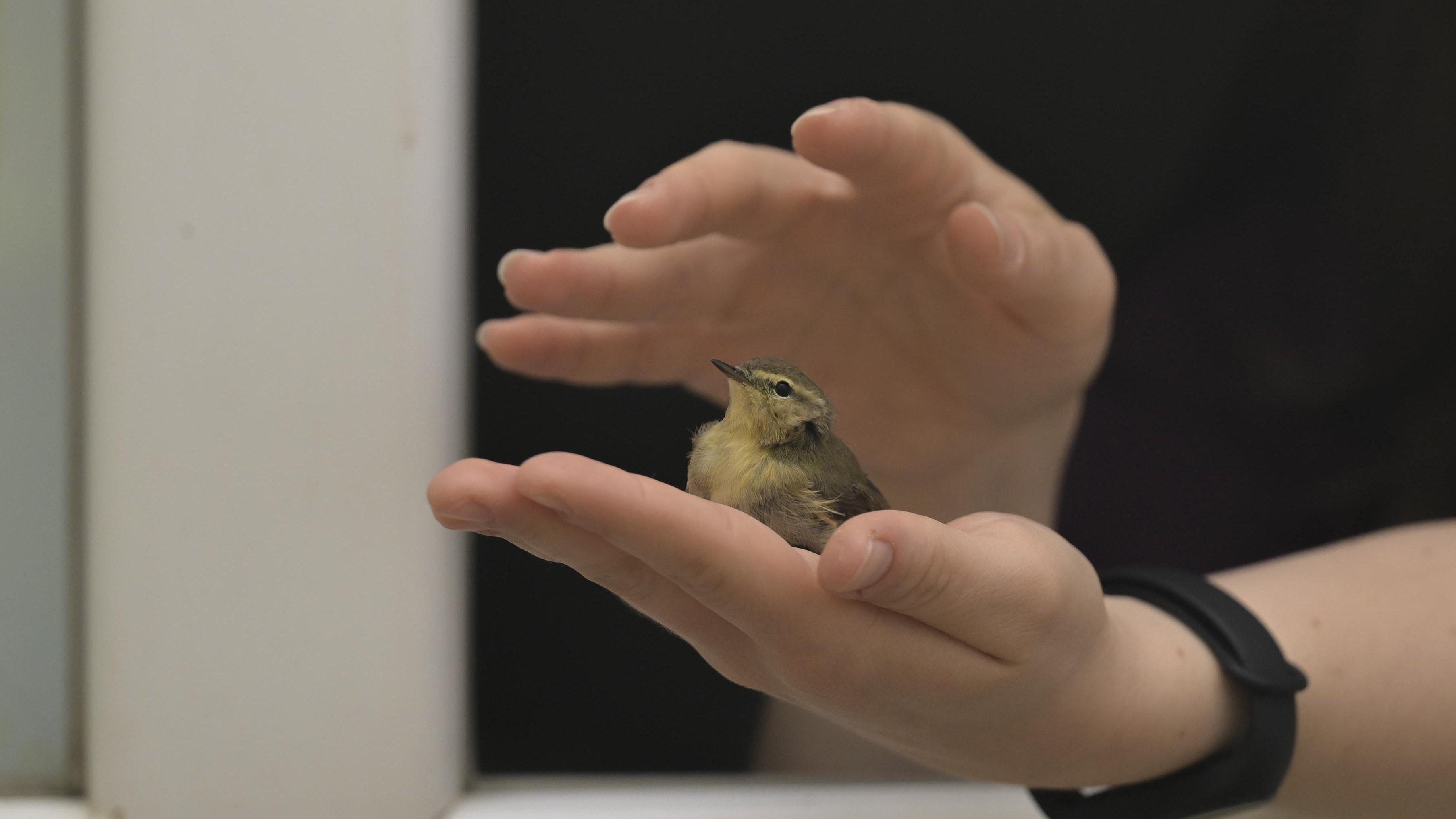
Blackcaps (Sylvia atricapilla) that were banded at the Eymir Bird Ringing Station in Ankara during the fall migration seasons of 2022 and 2023 have recently been recaptured at stations in Lebanon and Israel.
Bird ringing activities in Türkiye continue actively at key migration points, including Cernek (Samsun), Aras (Iğdır), Eymir (Ankara), Boğazkent (Antalya) and several stations in Istanbul. As temperatures rise and birds begin their spring migrations, Eymir has seen a surge in activity.
Operated for eight years in collaboration with Ankara University, Middle East Technical University (METU), and the General Directorate of Nature Conservation and National Parks, with support from the Ornithological Society of the Middle East, the Eymir Station has so far ringed more than 15,000 birds of 95 different species. After undergoing health checks, the birds are fitted with uniquely numbered rings and released, allowing scientists to track their migration routes.
Within this program, a blackcap ringed in fall 2022 was found approximately 712 kilometers away in Lebanon, while another ringed in fall 2023 was recaptured around 873 kilometers away in Israel.
Associate Professor Arzu Gürsoy Ergen from Ankara University’s Faculty of Science told the state-run Anadolu Agency that although sudden changes in temperature can temporarily affect migration, Eymir remains an important stopover site where birds can rest, feed and regain energy during their long journeys. “In a metropolitan city like Ankara, Eymir serves as an oasis for birds, offering safety and fresh food sources like insects and berries,” Ergen said.
Highlighting the scientific importance of bird ringing, Ergen explained that the birds are carefully caught, their species identified, and data such as wing and tail measurements, weight and fat levels are recorded before they are safely released back into nature.
“Thanks to ringing, we gain valuable information about where birds migrate, how long they live, when they return, and how climate conditions impact them,” she said.